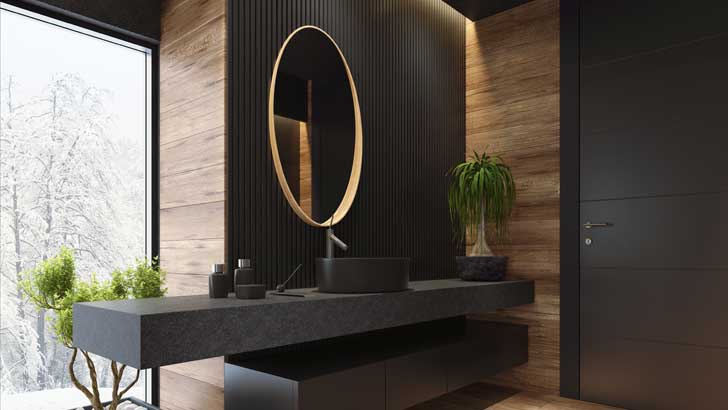Wanting an Insta-worthy kitchen is putting pressure on homeowners
Instagram feeds of perfectly-styled rooms and expensive renovations are putting pressure on homeowners to keep up with the Jones - or this season's contestants on The Block.
And it's leading to financial and emotional stress, according to behavioural finance experts.
When spending blows out
Karen Eley, a money coach and CEO of Women Talking Finance, says the beautifully made-up houses on TV shows like The Block and Grand Designs lead to a natural impulse to compare ourselves to others and, from a financial perspective, can push us to take on more financial commitments than we can afford.
Eley says it's common for people to prioritise today over tomorrow. which is what they might be doing when they overspend on their homes.
"A lot of us have a better perception of ourselves in the future - we think we will earn more, save more, exercise more, and in reality we don't," she says.
"So we take on all these commitments thinking we'll pay for them later but we don't really think about it rationally.
"In these shows no one talks about the financial challenges - you see the beautifully made-up home, and furnishings but how are they paying for it?"
She added that some people, particularly first home buyers, were already borrowing to the maximum in their mortgages - so the additional cost could be ruinous.
Forgetting the future
Eley has clients who have taken money from their future self - money set aside for a car or other expenses - and end up draining their savings to improve their home.
"I see it damaging their financial future," Eley says.
"A home is an emotional purchase for most of us and as a financial adviser I'm very aware that emotions should have no place in financial decision making."
Griffith University behavioural finance lecturer Tracy West thinks we are influenced by celebrity culture and a desire for instant gratification.
"The Gen Ys and millennials have never had a correction; baby boomers had good times and the generation before that was frugal - they had houses for 20 years before they did anything to them," West says.
"We've had good house price growth, so the amount of money spent has been seen as an investment but it might not happen again any time soon."

Sunk cost fallacy
Sunk cost fallacy is another behaviour that can lead people into overspending on their properties, West says.
People spend money on renovations, then the cost goes up but people feel they've already put in so much money that they can't afford to stop, she says.
"This also ties to loss aversion - we really feel losses, and sometimes we don't know how much something is going to cost at the start. Sometimes it's tradespeople who get you started with a low quote."
Renovation nation
Renovation queen Cherie Barber says the nation is obsessed with home shows.
"What happens is that people sit in front of the telly each week and see jaw-dropping designs of The Block, but for many people that's not realistic.
"They aim to have that look but when reality sets in they see the bathroom costs $40,000 and they only have $15,000 - they realise that it's not that achievable."
Barber says it's a series of factors that makes the costs blow out.
"People underestimate the cost of labour, the cost of materials, how long the process will take from start to finish and it's not just the planning. Even doing a simple bathroom renovation might trigger the need for council approval, and a draughtsman, which is $2000, and another $1000 to lodge the application.
"When people stare at the TV screen they get bamboozled with style but it often comes at a cost they can't afford.
"People still want to do something but they need clever solutions."

COVID-19 and renovations
While people having extra time at home to focus on what they'd like to change, the focus on renovation may also be an activity that can bring comfort during general upheaval and uncertainty.
Behavioural finance expert Phil Slade says right now renovating is something that gives people a feeling of control over.
"With COVID, people want to have some control and if they're in a house, they want to spend on renovations because it's something they can do.
"There's a sense of control, even with the chaos of renovations, they feel they're controlling that chaos."
COVID-19 has certainly spiked a renovation boom, Barber says, but it's mostly surface improvements, like home maintenance and fixing gardens.
"If you have time at home, put it to good use, use your time in a productive way, and this will add value to your home."
Get stories like this in our newsletters.



